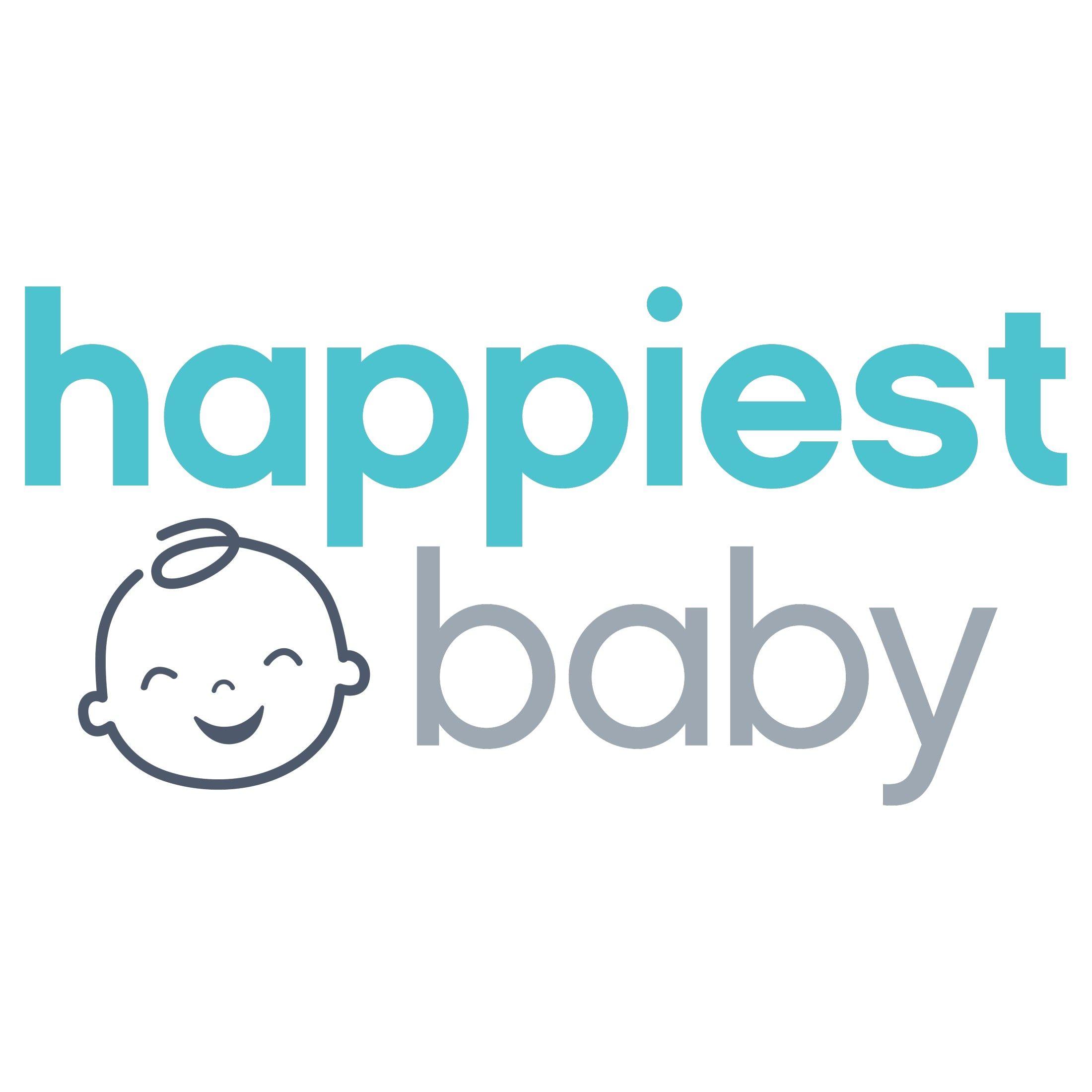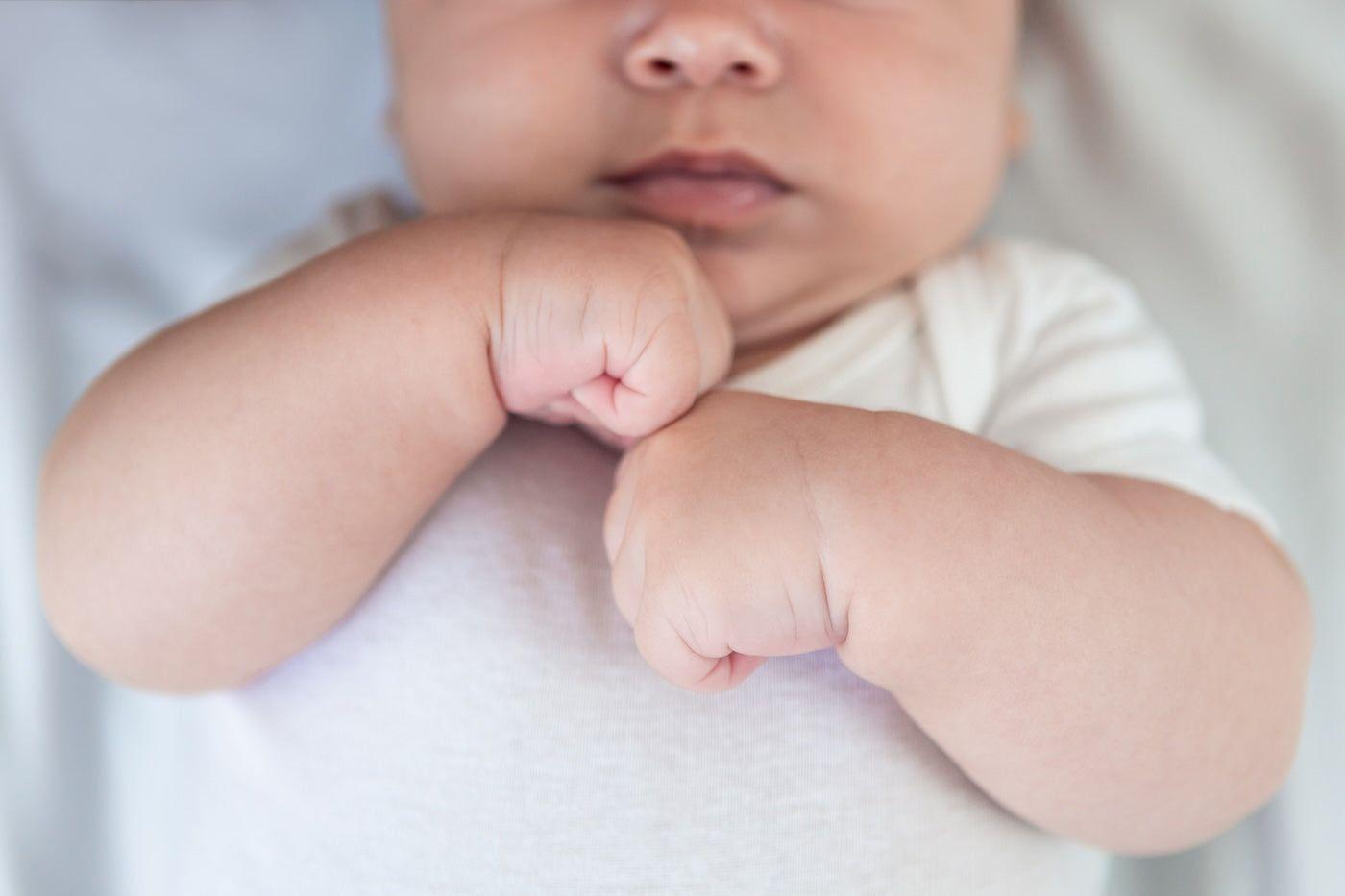BABY
Why Paediatricians Check for Clenched Fists at Routine Visits
Here’s what this reflex tells your GP.

Written by
Happiest Baby Staff

SHARE THIS ARTICLE
PARENT PICKS
Bestsellers
BABY

Written by
Happiest Baby Staff

SHARE THIS ARTICLE
Bestsellers
At every baby health check, your paediatrician or health visitor assesses developmental milestones you might not even realise are meaningful—like your baby's tiny clenched fists. But why do they matter so much?
You may have noticed that your newborn's hands are often tightly balled into little fists. Don’t worry—they’re not spoiling for a fight! Clenched fists are a completely normal part of early infancy. This tight hand clenching is one of several automatic reflexes your baby is born with.
Known as the palmar grasp reflex, this instinctive response causes your baby to hold on tightly when something touches their palm. It’s an evolutionary survival reflex that appears before birth and is often visible in scans. This reflex is at its strongest in the early weeks of life, and it’s the reason your baby can wrap their fingers firmly around yours.
But this grip isn’t voluntary—at least not yet. The clenched fists you see are a product of reflexive behaviour, not conscious movement. As your baby's brain and muscles mature, they’ll start gaining control over their hands, and those tight fists will begin to unfurl.
At each routine baby check, your health professional looks for signs of expected developmental progress. Reflexes—including the palmar grasp—are an important part of this assessment. They help show whether your baby's nervous system is developing as it should.
Here’s how clenched fists typically progress:
These changes are signs that your baby's fine motor skills are developing. Paediatricians and health visitors track them closely because they offer key insight into your baby’s brain and muscle growth.
While clenched fists are expected in the early months, if your baby still keeps their hands tightly fisted past 6 months, it could be a red flag for delayed motor development.
Consistently clenched fists—especially when paired with stiff limbs, limited movement, or delays in reaching, sitting, or rolling—can sometimes be an early sign of a neurological condition such as cerebral palsy.
That said, an occasional clenched hand beyond 6 months isn’t usually a concern. But if you’re seeing this pattern often and noticing other delays, it’s worth discussing with your GP, paediatrician, or child health nurse. The earlier these issues are identified, the sooner support can be put in place.
Most babies naturally move from clenched fists to open hands and grasping—but here are some ways to gently support that journey:
And of course, offer plenty of floor time and loving interaction. Your attention and presence are some of the best tools for supporting all areas of your baby’s development.
While clenched fists are a hallmark of newborn life, they also give health professionals helpful insight into your baby’s neurological development. In most cases, clenched fists begin to relax around 2 to 3 months and give way to purposeful grasping by 4 months.
If you ever have concerns, bring them up at your baby’s next health check or GP visit. There’s no such thing as a silly question when it comes to your baby’s wellbeing.
REFERENCES
Disclaimer: The information on our site is NOT medical advice for any specific person or condition. It is only meant as general information. If you have any medical questions and concerns about your child or yourself, please contact your health provider. Breastmilk is the best source of nutrition for babies. It is important that, in preparation for and during breastfeeding, mothers eat a healthy, balanced diet. Combined breast- and bottle-feeding in the first weeks of life may reduce the supply of a mother's breastmilk and reversing the decision not to breastfeed is difficult. If you do decide to use infant formula, you should follow instructions carefully.